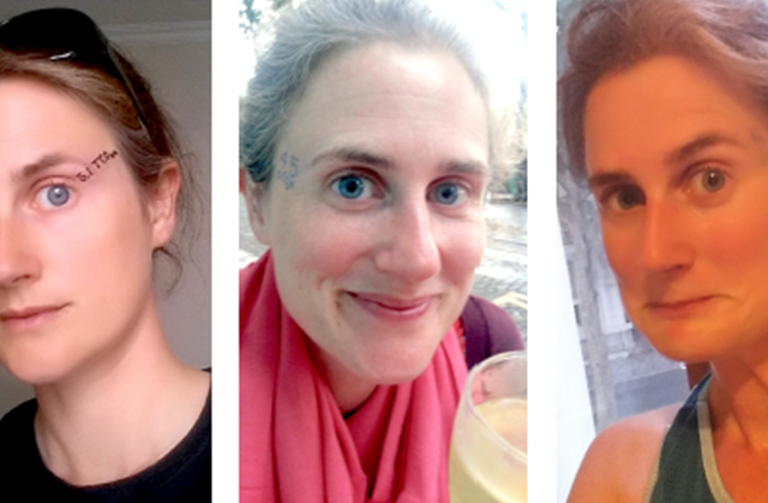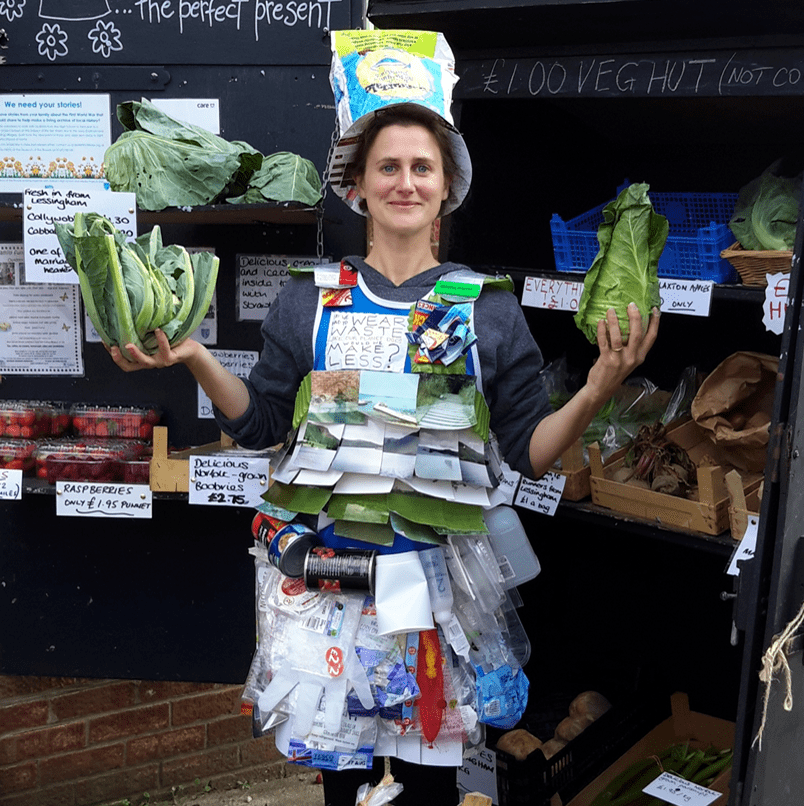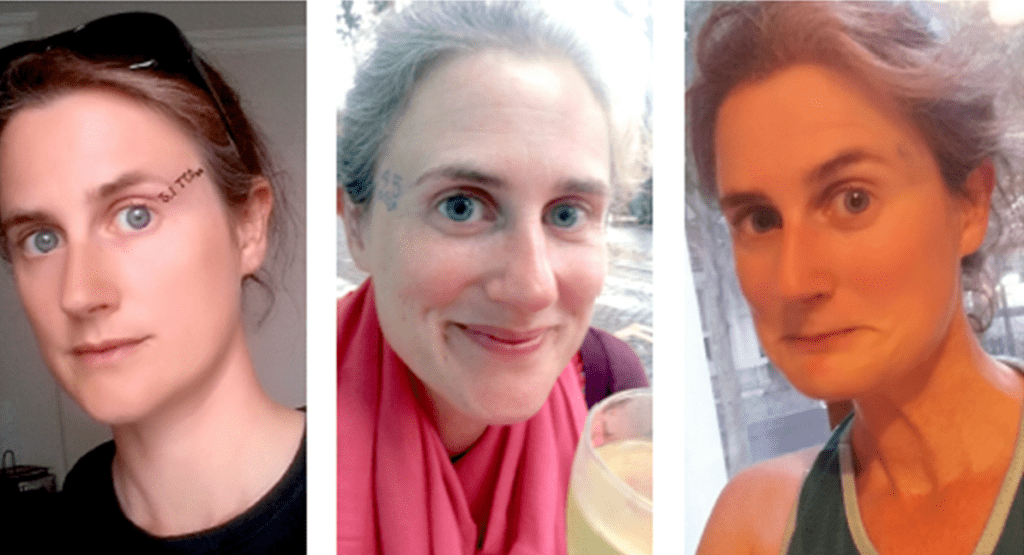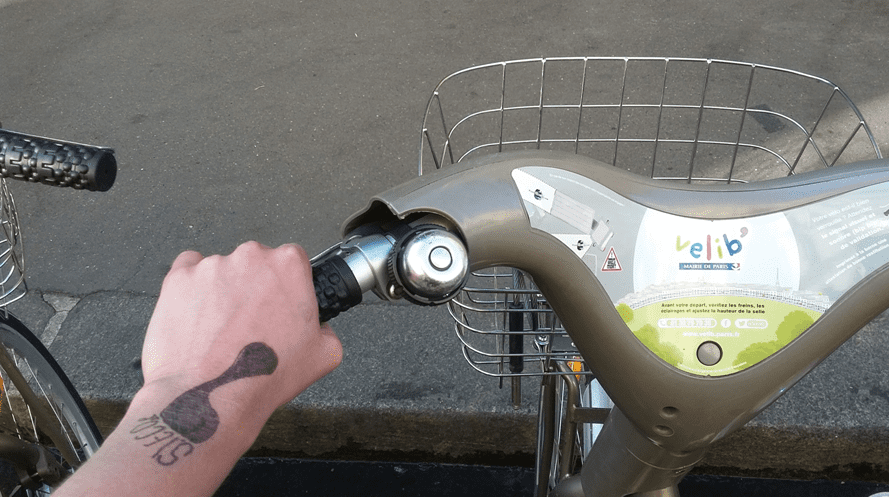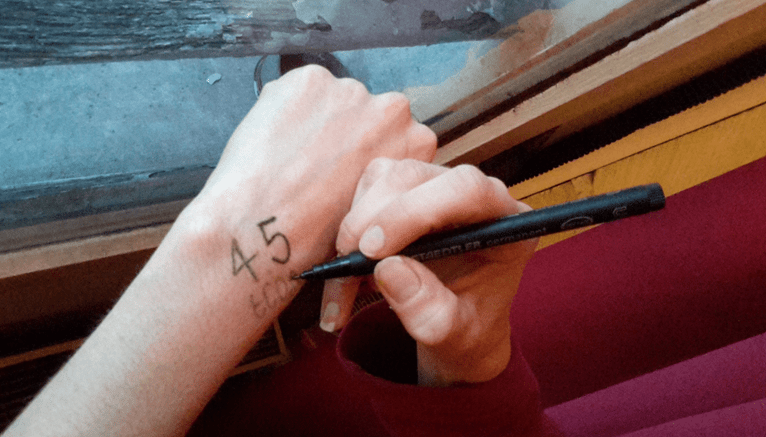This is the fifth in a series of blogs from our guest editor Kate Heath, an ex-humanitarian worker now based in Paris – exploring how to have constructive conversations about climate change.
I’ve always been attracted by the margins. I studied Community Water and Sanitation, and wanted to do projects on latrines in frozen environments. The outskirters. The eccentric. I trained originally to act. Drama school is a pretty wayward place, but I was the only one in Character class sat in a bucket eating flowers. I’ve come to recognise, somewhat unpalatably, that for much of my life a bit of me has sought recognition by pushing at the boundaries of normal. Unpalatable maybe – but incredibly useful to acknowledge, given that humdrum is the new funky in climate change conversation.
“There is a key role for radical activism. But the limited progress made on public engagement is in part a failure of energy and climate change campaigns in building a wide and inclusive movement. Climate change remains socially and culturally associated with only a narrow band of activists, and this poses a barrier to making rapid and radical societal progress on decarbonisation.” Corner and Clarke, ‘Talking Climate’, 2017
I wouldn’t think of myself as an activist. Nope. Not little me. But then… I did wear all my rubbish one fortnight a few years ago, to raise awareness about waste issues. It became a sort of space warrior suit with an ever elongating Mad Hatter tophat made out of a potato sack. It started conversations, for sure, and I’d been prepared to be a vehicle for attention for those couple of weeks, particularly because it was an issue I’d realised I wasn’t really addressing properly myself. And then…. I did decide to write my carbon emissions on myself as a public signboard, again, primarily to hold myself accountable for reducing them – I figured if others could question me on it, I’d be less able to procrastinate and have to get on and do something about it. But also to raise awareness on the importance of it as an issue – to force myself over the painful barrier of talking about it. Does that make me an activist? I ask Google. A ‘person who campaigns to bring about political or social change’. ‘An especially active, vigorous advocate of a cause, especially a political cause’. ‘The root word of activist is the Latin actus, “a doing, a driving force, or an impulse.” Oh.
I wouldn’t think of myself as an activist, but…… I guess I did once wear all the rubbish I generated for a fortnight. Actions that smack of eccentricity don’t really help, however, when it comes to communicating about climate change and energy issues, which desperately need normalising and bringing into the everyday, humdrum world of the ordinary here and now. Right. How difficult can that be?
It seemed like it would be fun, a little frivolous, but purposeful, writing my emissions on myself for all to see. Again, a conversation starter. And it was, to a degree. In the first 3 weeks, I had explained what the numbers meant to 10 people, and had in-depth discussions with 17 more, including three friends of friends who turned out to be working in sustainable energy; about how to reduce dairy with a vegan buddy; about how to measure and reduce your footprint with two guys working in aviation (admittedly at a climate discussion event), two boys at our swing dance class, and two wives of singers when I went to watch my mum’s choir; with a lady seeking to put motivated people in touch across Paris; with three young professionals interested in sustainable development; with one acquaintance from India, where sustainable farming came up without him having noticed my face; and about the whole shebang with my mum, my dad and my step-dad. And I think it was a little fun, at least when experienced from a distance by our dear far-off Facebook friends. But in person, it turned out to feel aggressive, and demanding. And selfish. Not at all the safe space that I was learning was needed to be able to discuss this in-fact-pretty-sensitive issue. And also a bit too out-of-the ordinary – which I was also coming to realise was not at all going to help ‘normalise’ these issues as matters of everyday concern.
(left) It’s a serious business engaging in a little purposeful frivolity. I tried out several permutations before deciding on a do-able format for writing my carbon footprint on my face (one I could write backwards in the mirror without being late for work). (middle) Out celebrating having gone down from 5.1 to 4.5 tonnes CO2e per year. (right) Proving tricksy to keep on your face, however, when mixed with sweat and suncream in the Paris sunshine.
But the process of stopping something I’d committed myself to was surprisingly guilt-wracked. Can anyone else relate to this? I kept plugging on with writing my footprint on my face for a good few weeks after its negative impacts had started to dawn on me, all the while squaring off against myself: embarrassed by what had started to seem like an attention-seeking stunt, which might well be running counter to the purposes of the whole endeavour, but feeling like I was reneging on a promise just because it was a bit uncomfortable to endure. Again, as I always wind up doing when I can’t quite make sense of what to do, I sat down and wrote the poem below to crystallise my thoughts.
But I Said I’d Do It.
I hate it.
I hate you, numbers, there.
My own eyes on me scorn: Attention seeker.
Heat pumps my head.
Shame inflames.
Elbowing, levered in, unnatural.
Ask me!
Go on.
Attention seeker.
If you knew why I’d written it there!
Tongue quietly tucking into bed my perpetually under-informed-seeming opinions,
Trussed-up perfectionist.
A talking point,
A bit of fun,
Denis from the swing dance: “I thought you were advertising Pastis”.
Yes, Denis, Yes!
(though no, Denis, no 🙂 )
I’m sorry for violating your curiosity autonomy.
Shame flares.
It was MY accountability,
Making ME talk,
MY burden.
Now yours, lumbered with, ‘Do I ask?’
‘Do I have to??’
Have I lost ALL my social skills?
What was I thinking??
The doctor steadily ignores it.
As do, studiously, the youth at the Climate Chat day.
Policeman glances back.
Activist in French is ‘militante’,
Connotation into which I did NOT mean to stray.
Why did this seem a good idea???
State of Emergency.
Damn straight, state of emergency!
But elbow-face suddenly senses her insensitivity
To your fear of each other.
Oh France!
Not the time for flecks of….Performance Art? Is that what this is?
Now I really reflect on ‘Attention seeker’….
Am I?
Or was it just that I was willing to be, for the sake of something bigger?
Humdrum, Kate, you were meant to celebrate the humdrum!
With my first all organic week-long bag of veg, my head sat at peace,
Dissonance resolved.
Now I feel sick with contradictions.
Paris, Summer 2017
The outward looking principle won out, and I took it off my face 7 weeks after I’d started, and wrote it instead on my wrist. And the quality of conversation improved significantly, I sense as a direct result. It’s deepened. It’s no longer something people feel obliged to ask me about early in a conversation, when you’re still in the quick-bit chit-chat. It’s something that’s oriented first and foremost towards me rather than to the world at large, spied out of the corner of the eye but open for public debate if desired. And when people do choose to ask me about it, it’s a genuine choice of theirs to do so – and at a point when the discussion’s already in a trusted space that allows for some genuine exchange.
Has it helped, to write it on my body? To make the invisible visible? I think so. It’s made me reduce my emissions! I’ve gone from 5.1 tonnes CO2 equivalent per year down to 4.5 and counting, and have two particular friends who always check and see if the number’s gone further down. And it’s made me talk about it. Would conversation with those 110 people have happened over the last 6 months anyway, if I’d just done the actions to reduce my emissions, got involved with a group and then shared what was going on in my life? Maybe – 6 years in disaster zones and I can get excited about pretty mundane moments these days; I could have shared my considerable excitement that I’d just found somewhere to compost my peelings, and my immense pleasure from the bucket they’d given me to do so. But I would speculate that it’s brought more themes into the conversation than would otherwise have come up, as it’s something that reflects the scale of my emissions as a whole. I wouldn’t otherwise have talked about actions that I’d started doing yonks ago, or, notably, am no longer doing – ‘What are you up to, Kate?’ ‘I’m learning to use a pressure cooker and I’m NOT taking a holiday to somewhere I’d have to fly to’. Unlikely – whereas, I’ve ended up talking about flying with a number of people, who’ve raised the issue themselves as they’re aware how big a contribution flights make to our footprints. And a common question has been, ‘Well, how big is the average, then?” – to which many folks have been surprised to learn it’s around 5.5 in France, but 14-odd in the UK.
So, this has and continues to be an interesting experiment. I would not recommend writing your emissions on your face. But writing them somewhere else, a little more discreet, a little more demure….? I’d be interested to hear your thoughts on the matter. And for those of you who relish the radical, or who hear ‘humdrum’ and feel a little suffocated: an encouragement –
“The silence around climate change is so pervasive that the act of spending time talking about it is a radical departure from the norm….. Getting people talking about climate change, taking on board the views of their peers, and updating their social misperceptions about others’ views are vitally important: catalysing and maintaining a vibrant public dialogue is an end in itself.” Corner and Clarke, ‘Talking Climate’, 2017


